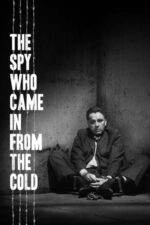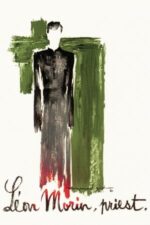Beyond Belief: Exploring Atheism on Screen – It’s More Than Just a Lack of Faith
Okay, let's talk about atheism in film. Now, when I say that, I don’t just mean movies about atheists (though we have some fascinating examples!). I want to explore how cinema uses the concept of disbelief—the questioning of faith, the rejection of dogma—as a narrative tool, a thematic lens, and even as a character archetype. It's surprisingly rich territory, and it’s far more nuanced than you might initially think.
For a long time, depictions of atheism in film were often… well, simplistic. The "atheist" was the cynical villain, the cold intellectual, or simply a plot device to contrast with the virtuous believer. Think about End of Days, for instance. Jericho Cane, the atheist tasked with saving humanity from Satan, is presented as almost reluctantly heroic – his disbelief somehow making him uniquely qualified to fight demonic forces. It’s a trope that leans heavily on the idea that faith is inherently good and its absence makes you… well, useful in unexpected ways.
But increasingly, filmmakers are digging deeper. Léon Morin, Priest, set during wartime France, offers a beautiful counterpoint. Barny, our protagonist, isn't presented as an antagonist to faith; she’s a woman wrestling with her own beliefs (or lack thereof) while navigating incredibly difficult circumstances. Her interactions with the priest aren’t about converting her, but about exploring the complexities of human desire and spiritual questioning. It’s less about denying faith and more about grappling with its meaning in a world ravaged by conflict. It's a really powerful example of how atheism can be a starting point for profound introspection, not just a declaration of opposition.
Then you have films like Butterfly, set against the backdrop of the Spanish Civil War. While Moncho’s journey is primarily about coming-of-age, his teacher, Don Gregorio, embodies a quiet skepticism and intellectual independence that subtly challenges societal norms and religious dogma. He doesn't explicitly declare himself an atheist, but his worldview—his emphasis on reason and observation—resonates with atheistic principles. It highlights how questioning authority isn’t always about rejecting religion entirely; it can be about fostering critical thinking.
Even something like The Spy Who Came in from the Cold touches upon this theme. Alec Leamas's cynicism, his rejection of idealistic notions – including those often tied to faith – fuels his actions and ultimately defines him. He operates outside a moral framework dictated by belief; he’s driven by pragmatism and a deep distrust of institutions.
What I find fascinating is how these films, even the more action-oriented ones like Awarapan, use characters who question or reject traditional beliefs to explore universal themes: loyalty, morality, and the search for meaning in a chaotic world. It's not always about proving atheism right or wrong; it’s about using that perspective to illuminate the human condition.
So, next time you’re looking for something thought-provoking, consider seeking out films that grapple with disbelief—not just as an absence of faith, but as a lens through which to examine ourselves and the world around us. You might be surprised by what you discover.

































